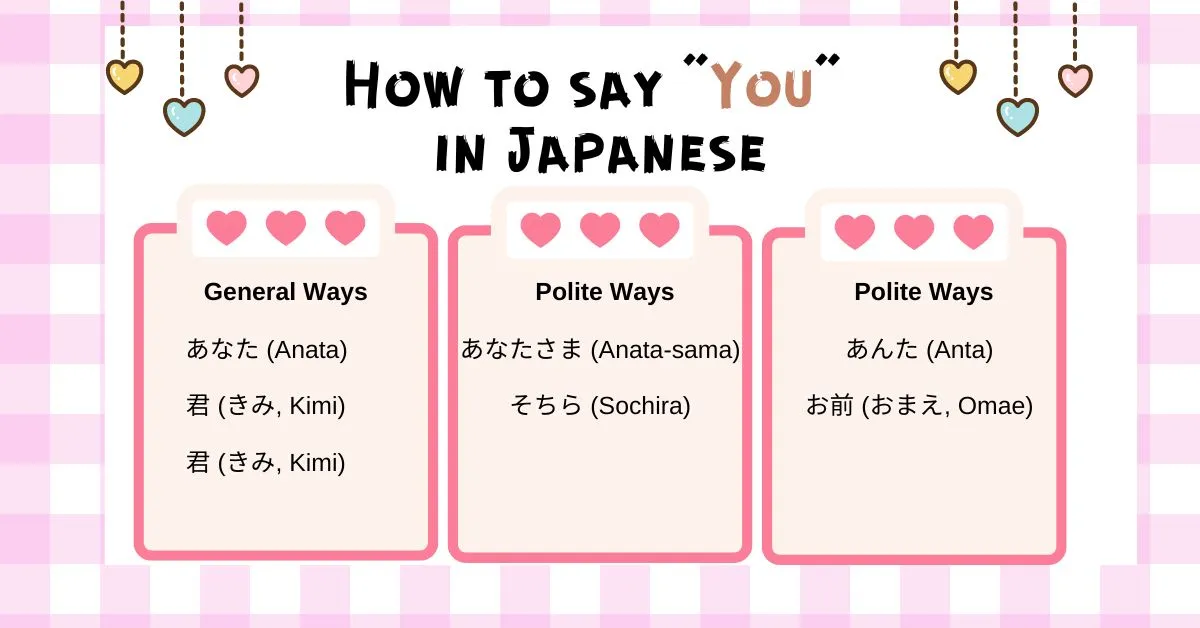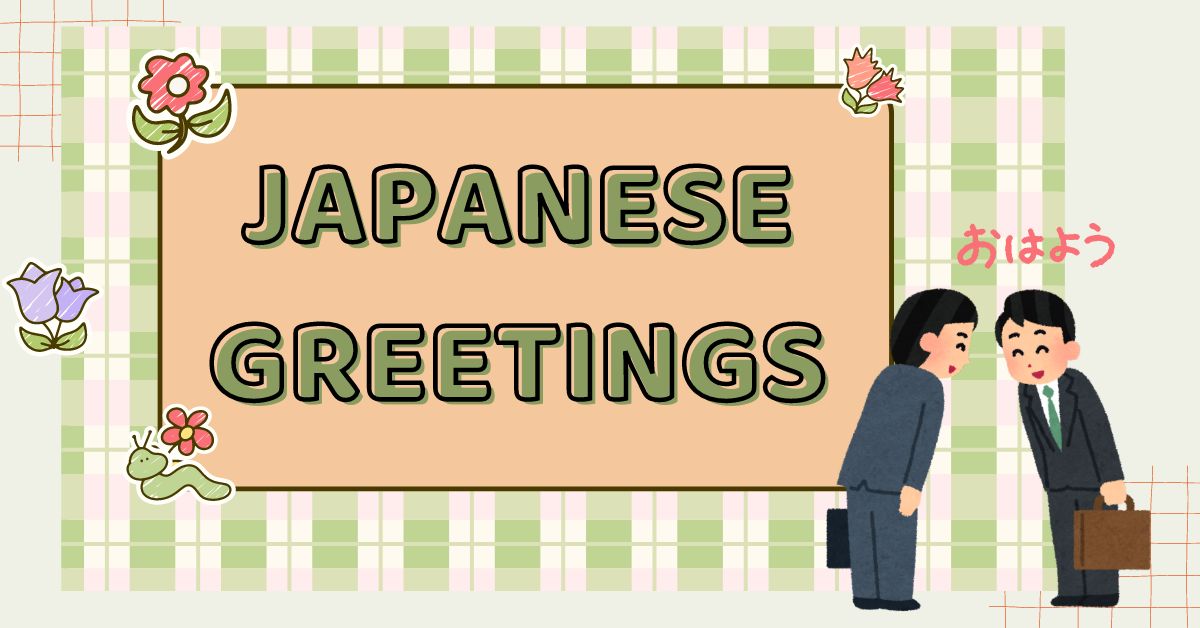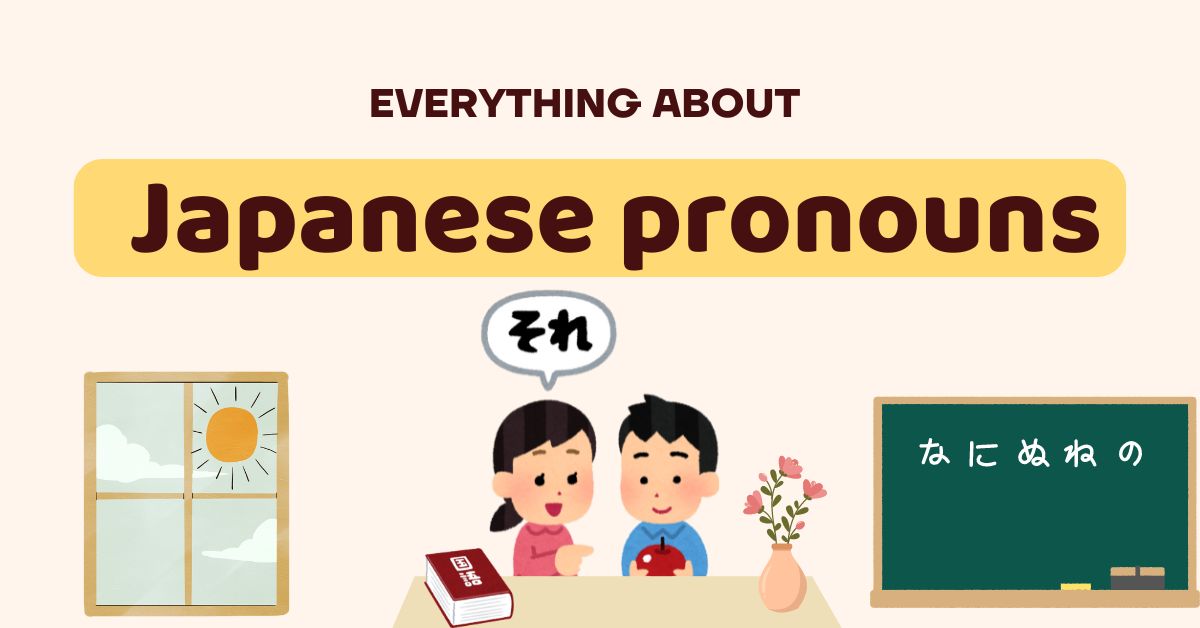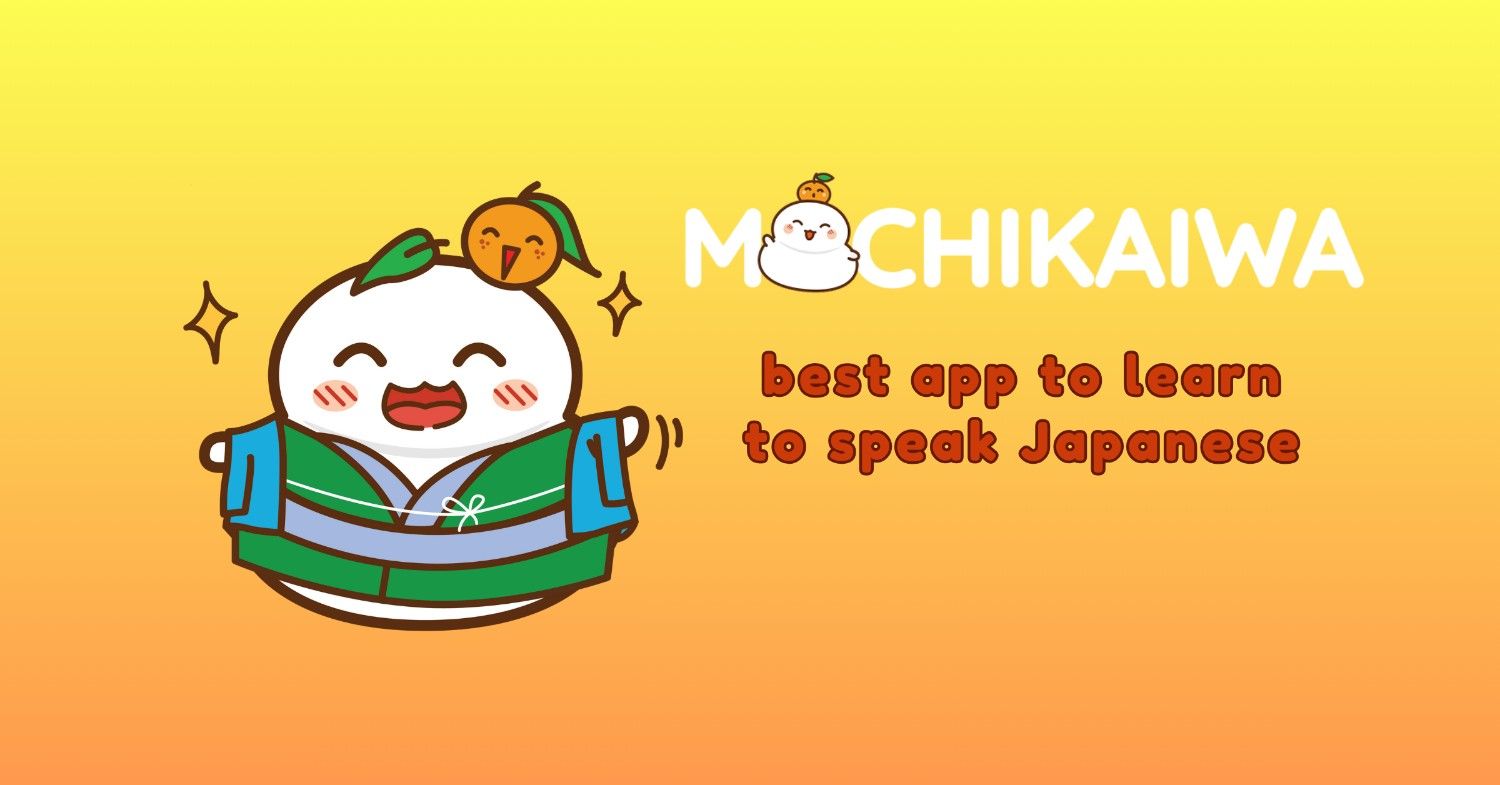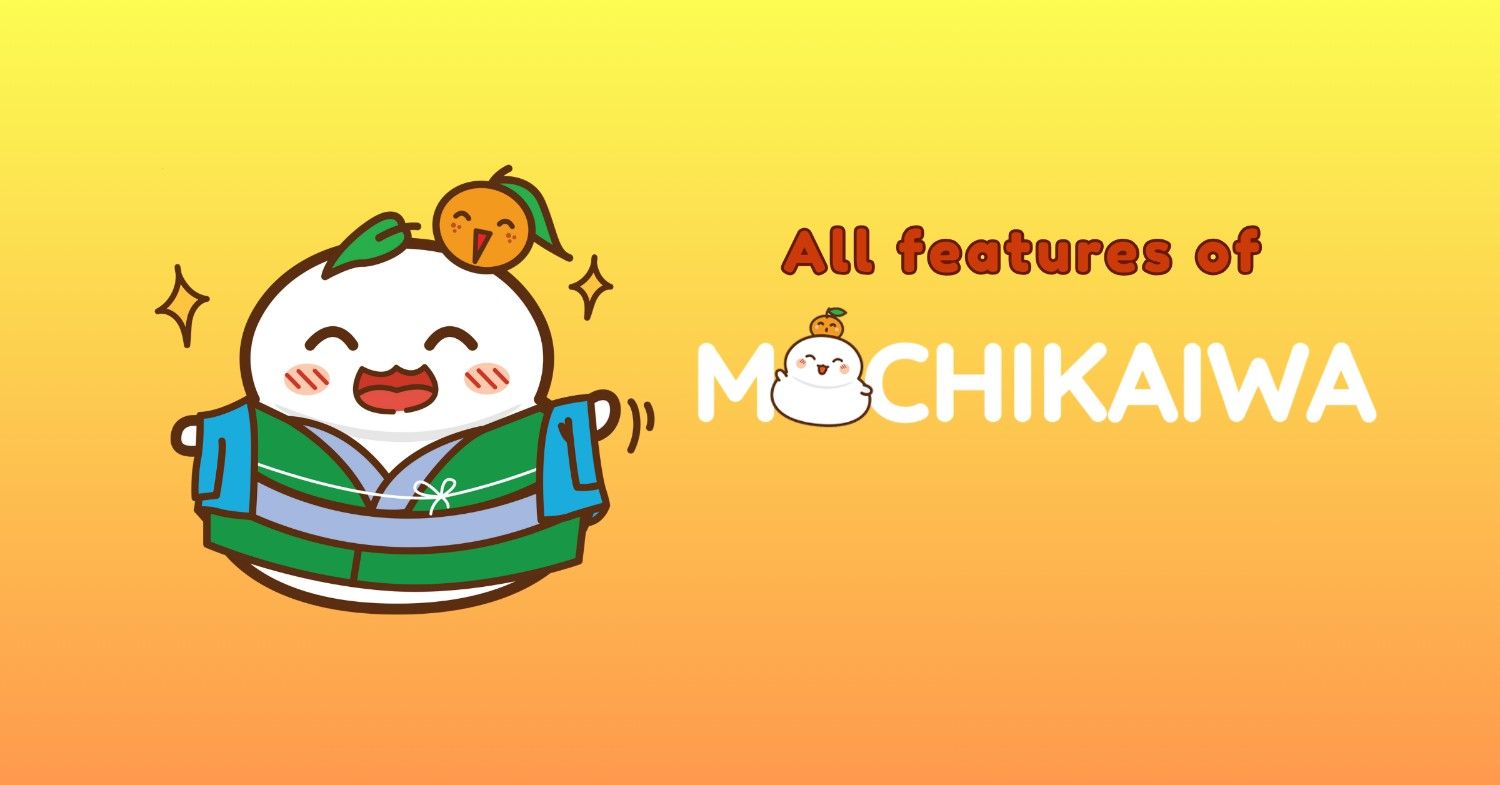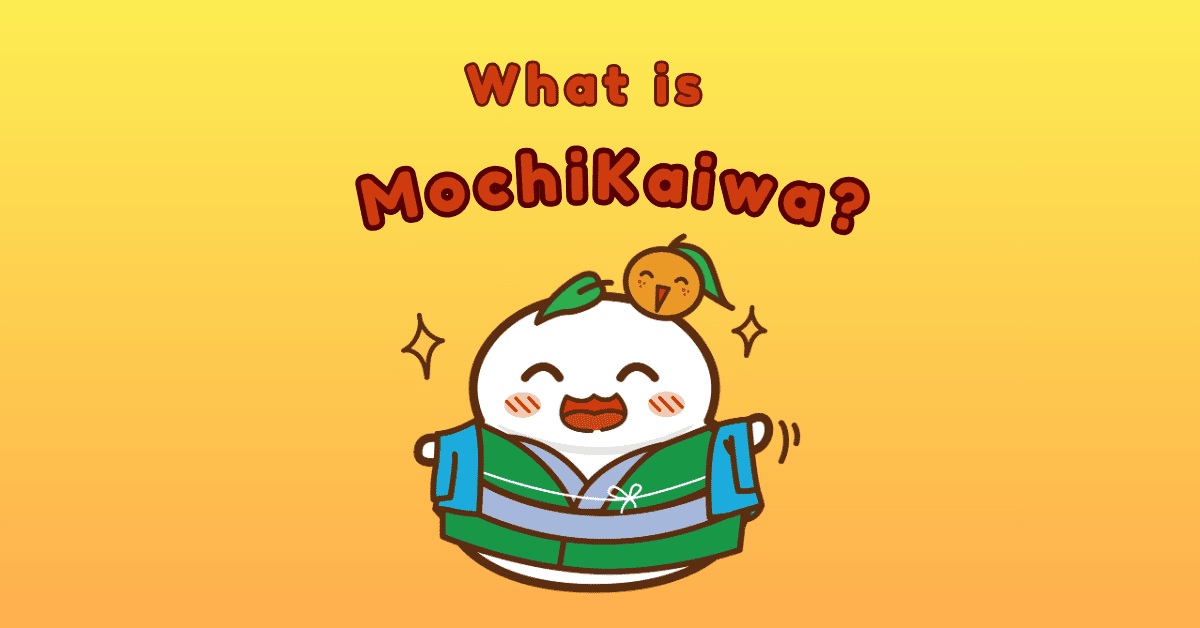For those learning Japanese, understanding the various ways to say “you” is crucial. Unlike English, Japanese has multiple terms for “you,” each with different levels of formality and nuances. Here’s a detailed guide to help you navigate these terms, their appropriate usage, and some cultural tips for more natural conversation.
- General Ways to Say “You” in Japanese
- Polite Ways to Say “You” in Japanese
- Rude Ways to Say “You” in Japanese
- Avoid Overusing “You” in Japanese
- Learn Japanese Natural Conversation
- FAQs

General Ways to Say “You”
あなた (Anata)
あなた (anata) is the most common way to say “you” in Japanese. It is relatively neutral and can be used in most situations. However, it is still considered somewhat direct and should be used cautiously.
- Example: あなたは学生ですか? (あなたはがくせいですか, Anata wa gakusei desu ka?) – “Are you a student?”
君 (きみ, Kimi)
君 (きみ, kimi) is an informal term used to address people of equal or lower status, such as friends or younger people. It is commonly used by boys towards girls.
- Example: 君はどこに住んでいるか? (きみはどこにすんでいるか, Kimi wa doko ni sunde iru ka?) – “Where do you live?”
Polite Ways to Say “You” in Japanese
あなたさま (Anata-sama)
貴方様 – あなたさま (anata-sama) is an extremely polite way to say “you.” “貴方様(anatasama)” is used when you are not acquainted with someone in spoken language or on the phone and you do not know their name or position.
- It is also used in mail magazines and direct mail.
- It is used to guide many customers.
- honorific expression for “you”
- Example: 貴方様の名前は何ですか? (あなたさまのおなまえはなんですか, Anata-sama no namae wa nan desu ka?) – “What is your name?”
そちら (Sochira)
そちら (sochira) is a polite, indirect way to refer to “you,” often used in formal settings or business environments. It literally means “over there” but is used to address the person being spoken to.
- Example: そちらのご意見を聞かせてください。 (そちらのごいけんをきかせてください, Sochira no goiken o kikasete kudasai) – “Please let me hear your opinion.”
Rude Ways to Say “You” in Japanese
あんた (Anta)
あんた (anta) is a very casual and often rude way to say “you,” typically used by older people addressing younger ones or in very informal contexts. It can come off as disrespectful if used improperly.
- Example: あんた、何してるの? (あんた、なにしてるの, Anta, nani shiteru no?) – “What are you doing?”
お前 (おまえ, Omae)
As mentioned earlier, お前 (おまえ, omae) is quite informal and can be rude. It’s used among close friends or in confrontations, and using it inappropriately can offend people.
- Example: お前、バカだな。 (おまえ、ばかだな, Omae, baka da na) – “You’re an idiot.”
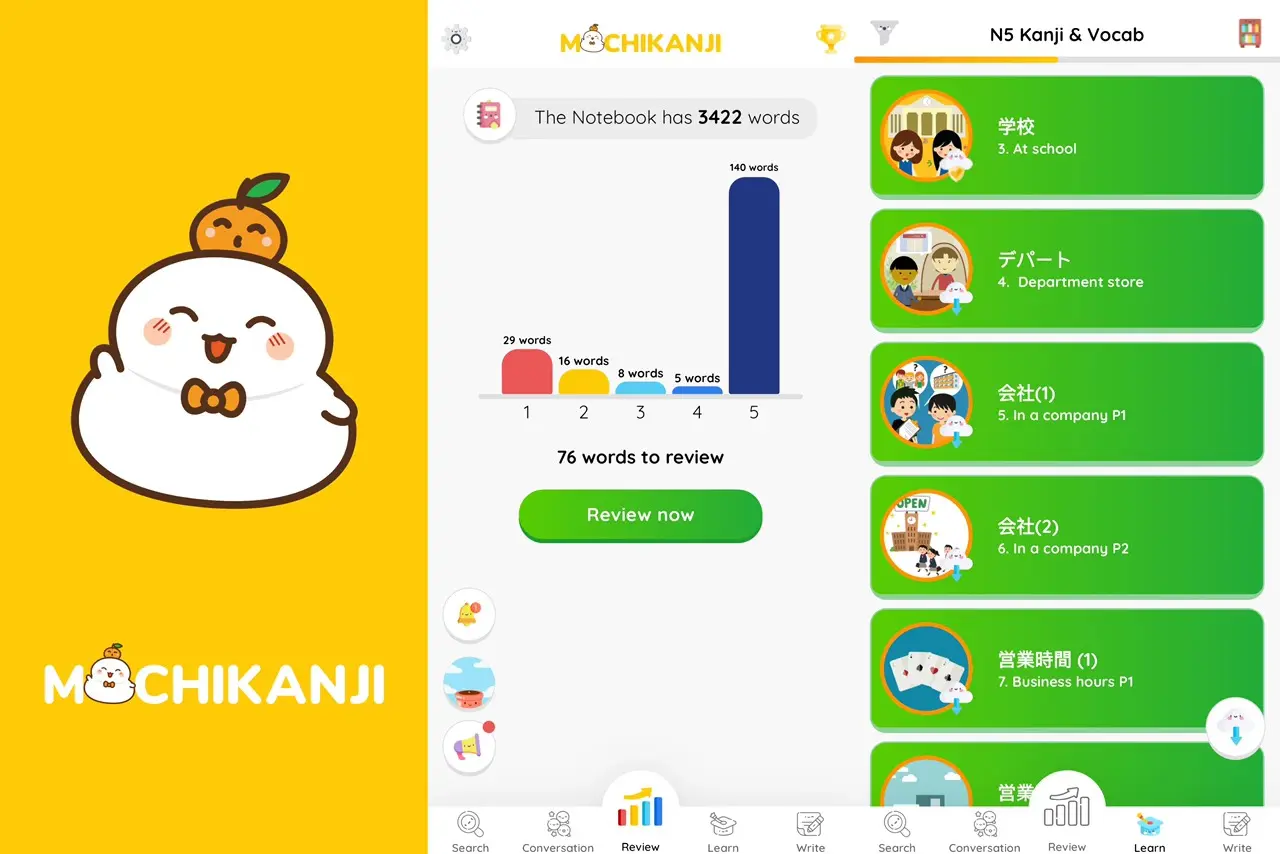
Using MochiKanji to learn the Japanese word for ‘you’ and other vocabulary is highly effective. The app offers detailed flashcards with images and sounds that make remembering words like ‘anata’ and their various contexts easier. Its spaced repetition system helps reinforce your understanding, while interactive exercises ensure you can use these words confidently in conversation. MochiKanji’s comprehensive approach supports your journey to mastering essential Japanese vocabulary
Avoid Overusing “You” in Japanese
Use Name + Honorifics
Instead of using pronouns, Japanese often use the person’s name followed by an appropriate honorific. This approach is more polite and culturally appropriate.
- Example: 田中さんはどう思いますか? (たなかさんはどうおもいますか, Tanaka-san wa dou omoimasu ka?) – “What do you think, Mr. Tanaka?”
Use Nothing
Sometimes, it’s best to avoid using any pronoun and imply “you” through context. This is common in Japanese conversation.
- Example: どこに行きますか? (どこにいきますか, Doko ni ikimasu ka?) – “Where are you going?”
Use Titles Like 兄さん (にいさん, Oni-san) or おばさん (Oba-san)
Referring to someone by their title or relationship to you can also replace “you” and sound more natural.
- Example: お兄さんは忙しいですか? (おにいさんはいそがしいですか, Oni-san wa isogashii desu ka?) – “Are you busy, brother?”
- Example: おばさんは元気ですか? (おばさんはげんきですか, Oba-san wa genki desu ka?) – “How are you, aunt?”
You can also use these titles for people who are not related to you for example for a man on the street that looks a bit older than you and he is a complete stranger. In this case you can call him おにいさん (onii san, brother).
Learn Japanese Natural Conversation
To sound natural in Japanese, practice incorporating these elements into your daily conversations. Here are some tips:
Practice Regularly
Engage in conversations with native speakers or fellow learners to get used to using these terms correctly. Language exchange partners or tutors can provide valuable feedback.
Listen and Mimic
Watch Japanese shows, listen to podcasts, or interact with Japanese media. Pay attention to how characters address each other and mimic their speech patterns.
Writing Practice
Write short dialogues or journal entries using different forms of “you” and practice using honorifics and titles. This helps solidify your understanding and usage.
Example Dialogue
A: 田中さん、お元気ですか? (たなかさん、おげんきですか, Tanaka-san, ogenki desu ka?)
B: はい、元気です。あなたは? (はい、げんきです。あなたは, Hai, genki desu. Anata wa?)
A: 私も元気です。 (わたしもげんきです, Watashi mo genki desu.)
By practicing these tips and understanding the nuances of addressing people in Japanese, you’ll improve your conversational skills and communicate more naturally and respectfully. This knowledge not only enhances your language abilities but also helps you navigate social interactions in Japanese culture more effectively.
To learn more Japanese vocabulary, try MochiKanji now!
FAQs
How do you say you in Japanese politely?
In polite conversation, it’s often better to avoid using the word “you” directly. Instead, Japanese people usually use the person’s name followed by an honorific (like さん san). If necessary, you can use “あなた” (anata), but be cautious as it can sound overly familiar or distant in certain contexts.
Does Japanese have a word for you?
Yes, Japanese has several words for “you,” including “あなた” (anata), “君” (kimi), and “お前” (omae), but they vary greatly in formality and appropriateness. Often, “you” is implied without explicitly being said.
Does Anata mean you?
Yes, “あなた” (anata) means “you,” but it’s not always the best choice in conversation. It’s polite but can feel impersonal or even cold, depending on the context.
Should you say anata?
In most situations, it’s better to avoid using “anata” and instead refer to the person by name or omit “you” entirely, as it’s often unnecessary in Japanese. Use “anata” carefully, especially in formal or intimate settings, as it can sometimes come across as distant or too direct.

